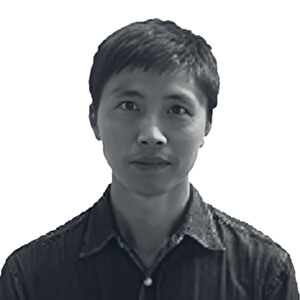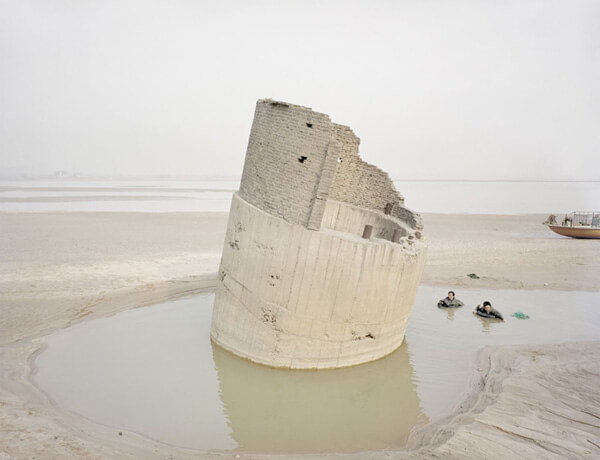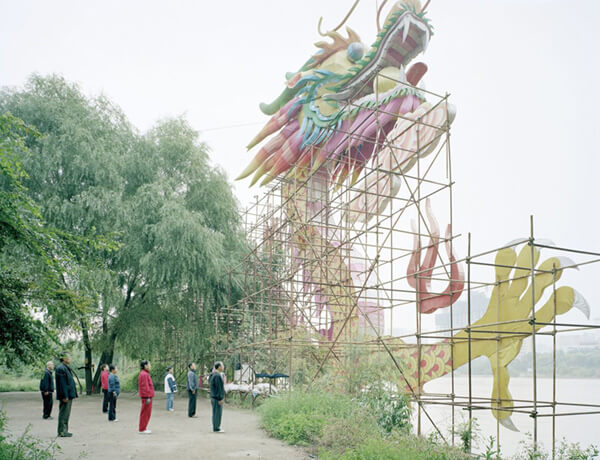
Kechun Zhang
Kechun Zhang , born in 1980 in Sichuan, is a Chinese photographer renowned for his contemplative studies of the post-industrial landscape of modern China. Working with a large-format camera, he creates expansive, atmospheric vistas that reflect the fragile balance between cultural heritage and the pressures of modernisation. His photographs employ a soft, muted colour palette, imbuing altered landscapes with quiet beauty while revealing the resilience, humour and humanity of everyday life within these vast environments.
Kechun’s career has been defined by his exploration of the role of landscape in shaping Chinese national identity. His best-known project, The Yellow River, journeys along one of China’s most historic waterways, observing how modern development reshapes both geography and memory. Through his subtle, atmospheric approach, Kechun crafts images that highlight both the grandeur of natural settings and the vulnerability of their transformation.
His work has been widely exhibited, with showings at Photoquai in Paris, the Beijing Photo Biennale, and the Delhi Photo Festival. International audiences have come to admire the quiet poetry of his vision, where contemporary realities meet cultural continuity.


Kechun’s distinctive voice in contemporary photography has been acknowledged with significant awards. He won the Discovery Award at Les Rencontres d’Arles in 2014 for The Yellow River and received the National Geographic Picks Global Photo Contest Award in 1998. In 2013, he was shortlisted for the Sony World Photography Awards, and in 2023, he was awarded first prize in the Still Life category of the same awards. These honours reflect the enduring resonance of his imagery across themes of memory, transformation, and national identity.
His practice blends epic scale with personal intimacy. While his vistas are monumental, Kechun’s attention to fleeting, even comical, everyday moments roots his work in the lived experiences of people navigating China’s evolving landscapes. His photographs convey both a sense of nostalgia and an awareness of the challenges brought by rapid development, creating an aesthetic that is at once melancholic and affirming.
Kechun lives and works in Chengdu, China, where he continues to produce long form projects exploring the tension between the past and present. His commitment to documenting China’s landscapes ensures his work remains both a record of transformation and a meditation on identity.